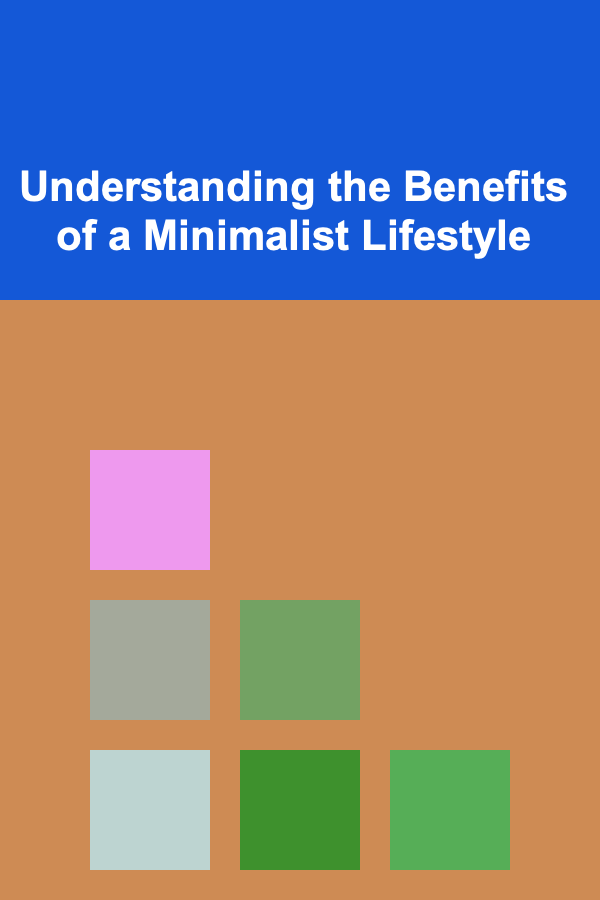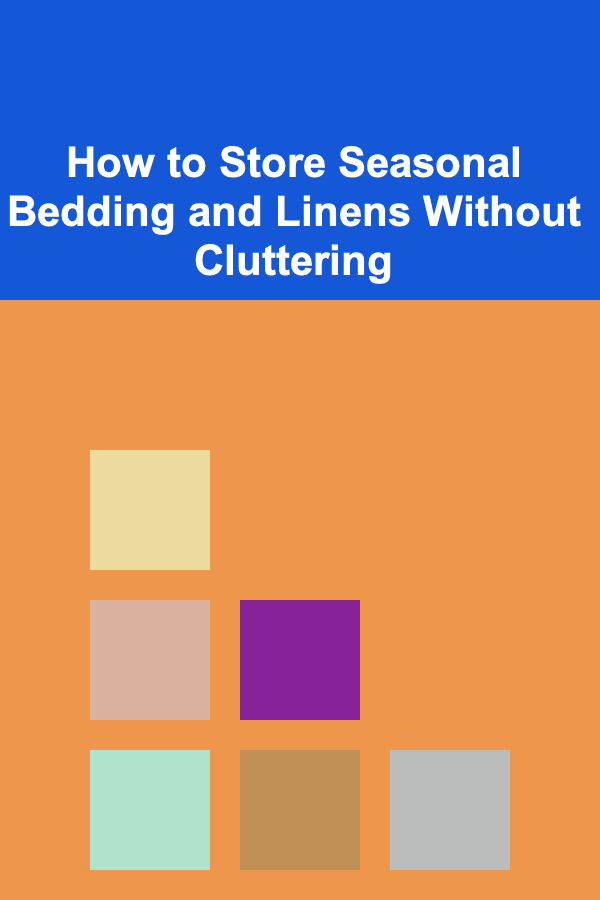
Understanding the Benefits of a Minimalist Lifestyle
ebook include PDF & Audio bundle (Micro Guide)
$12.99$5.99
Limited Time Offer! Order within the next:

Minimalism, often perceived as simply owning less, is a profound philosophy and a conscious lifestyle choice that extends far beyond decluttering. It's about intentionally promoting the things we most value and removing everything that distracts us from them. It's a deliberate re-evaluation of our relationship with possessions, time, energy, and even relationships. Understanding the multifaceted benefits of adopting a minimalist lifestyle requires a deeper dive into its principles and a personal exploration of its potential impact on various aspects of our lives.
Challenging the Consumerist Mindset
Our modern society is deeply entrenched in consumerism. From pervasive advertising to social pressures, we are constantly bombarded with messages that equate happiness with acquiring more "stuff." This relentless pursuit of material possessions often leads to a cycle of dissatisfaction, stress, and financial burden. Minimalism directly challenges this consumerist mindset by encouraging us to question the necessity of our purchases and to focus instead on experiences, relationships, and personal growth.
One of the initial hurdles in understanding minimalism is recognizing the subtle ways consumerism has shaped our values. We often accumulate items based on perceived needs dictated by advertising or social trends, rather than genuine personal desires. Minimalism compels us to introspectively examine our motivations for acquiring things. Are we buying something because it genuinely enhances our lives, or are we seeking temporary validation or filling an emotional void?
Breaking free from the consumerist mindset involves developing a critical awareness of marketing tactics and cultivating a sense of contentment with what we already possess. It's about prioritizing quality over quantity, choosing experiences over material possessions, and recognizing that true happiness stems from within, not from external acquisitions.
Financial Freedom and Reduced Stress
The financial benefits of minimalism are often the most immediately apparent. By consciously reducing our spending on non-essential items, we can free up significant financial resources. This surplus can be channeled towards more meaningful goals, such as paying off debt, investing in education, pursuing passions, or building a more secure future.
Consider the cumulative impact of small, seemingly insignificant purchases. A daily coffee, subscription services we barely use, impulse buys at the grocery store -- these expenses add up over time, often without us realizing the extent of their impact. Minimalism encourages us to track our spending, identify areas where we can cut back, and make more intentional financial choices.
Moreover, a minimalist lifestyle reduces financial stress. The pressure to keep up with the latest trends, acquire status symbols, and constantly upgrade our possessions diminishes as we prioritize experiences and personal growth. With less debt and more financial freedom, we can experience a greater sense of security and peace of mind.
Beyond the immediate financial gains, minimalism fosters a long-term shift in our relationship with money. We learn to appreciate the value of saving, investing, and living within our means. This newfound financial discipline can have a profound impact on our overall well-being and long-term security.
Increased Clarity and Focus
A cluttered environment can lead to a cluttered mind. Studies have shown that visual clutter can impair cognitive function, reduce our ability to focus, and increase stress levels. Minimalism, by promoting a clean and organized living space, can significantly enhance our mental clarity and focus.
Imagine a desk covered in stacks of papers, unopened mail, and miscellaneous objects. The visual stimulation from this clutter competes for our attention, making it difficult to concentrate on the task at hand. By simplifying our surroundings, we create a more peaceful and conducive environment for work, creativity, and relaxation.
Furthermore, minimalism extends beyond physical possessions to encompass our digital lives. A constant stream of notifications, emails, and social media updates can be overwhelming and distracting. By consciously curating our digital environment, we can reduce the noise and improve our ability to focus on what truly matters.
This increased clarity and focus translates into greater productivity, creativity, and overall well-being. When we are not constantly bombarded with distractions, we can more effectively pursue our goals, connect with our passions, and cultivate a deeper sense of presence in our lives.
Enhanced Relationships and Experiences
Minimalism is not just about getting rid of things; it's about making space for what truly matters. By decluttering our lives, we create more time and energy for meaningful relationships and enriching experiences. We shift our focus from acquiring possessions to cultivating connections and creating lasting memories.
Think about the time you spend shopping, organizing, and maintaining your belongings. That time could be spent with loved ones, pursuing hobbies, volunteering, or simply enjoying moments of quiet reflection. Minimalism empowers us to reclaim our time and invest it in activities that bring us joy and fulfillment.
Furthermore, minimalism encourages us to prioritize experiences over material possessions. Instead of buying the latest gadget, we might choose to travel, take a class, or attend a concert. These experiences create lasting memories and enrich our lives in ways that material possessions never can.
By simplifying our lives, we also create more space for deeper and more meaningful relationships. We are less preoccupied with acquiring things and more present with the people we care about. This can lead to stronger bonds, more authentic connections, and a greater sense of belonging.
Environmental Sustainability
The consumerist culture fuels environmental degradation through resource depletion, pollution, and waste generation. Minimalism offers a powerful antidote to this destructive cycle by promoting conscious consumption, reducing waste, and encouraging a more sustainable lifestyle.
By buying less, we reduce the demand for new products, which in turn lessens the strain on natural resources. We also minimize the amount of waste that ends up in landfills. Minimalism encourages us to be mindful of the environmental impact of our consumption habits and to make more sustainable choices.
One of the key principles of minimalism is to prioritize quality over quantity. Instead of buying cheap, disposable items, we invest in durable, well-made products that will last longer. This reduces the need for frequent replacements and minimizes waste.
Minimalism also encourages us to repair and repurpose items instead of discarding them. This reduces waste and extends the lifespan of our belongings. By embracing a more circular economy, we can minimize our environmental footprint and contribute to a more sustainable future.
Furthermore, minimalism often leads to a more conscious lifestyle in general. We become more aware of our consumption habits, our energy usage, and our impact on the planet. This increased awareness can motivate us to adopt other sustainable practices, such as reducing our carbon footprint, conserving water, and supporting environmentally friendly businesses.
Improved Mental and Physical Well-being
The benefits of minimalism extend beyond the tangible to encompass our mental and physical well-being. By reducing stress, increasing clarity, and freeing up time for meaningful activities, minimalism can significantly improve our overall quality of life.
The stress of managing excessive possessions, keeping up with trends, and dealing with financial pressures can take a toll on our mental health. Minimalism helps to alleviate this stress by simplifying our lives and reducing the demands on our time and energy.
The increased clarity and focus that comes with minimalism can also improve our mental well-being. When we are not constantly bombarded with distractions, we can more effectively manage our thoughts and emotions. This can lead to greater self-awareness, resilience, and overall mental stability.
Furthermore, minimalism frees up time for activities that promote physical well-being, such as exercise, healthy eating, and spending time in nature. By prioritizing our health, we can improve our energy levels, reduce our risk of chronic diseases, and enhance our overall quality of life.
The reduction in clutter and the creation of a more peaceful living space can also contribute to improved sleep quality. A cluttered bedroom can be visually stimulating and disrupt our sleep patterns. By simplifying our surroundings, we create a more restful and conducive environment for sleep.
Personal Growth and Self-Discovery
At its core, minimalism is a journey of self-discovery. It forces us to confront our values, question our motivations, and define what truly matters to us. This introspective process can lead to significant personal growth and a deeper understanding of ourselves.
By challenging the consumerist mindset, we begin to question the societal norms and expectations that have shaped our beliefs and behaviors. We examine our relationship with possessions, our motivations for acquiring things, and the impact of our consumption habits on our lives.
This process of self-reflection can lead to a greater sense of authenticity and self-acceptance. We learn to embrace our true selves, rather than striving to conform to external pressures. We develop a stronger sense of identity and purpose.
Minimalism also encourages us to cultivate gratitude for what we already have. By appreciating the simple things in life, we can experience a greater sense of contentment and fulfillment. We learn to find joy in experiences, relationships, and personal growth, rather than relying on material possessions for happiness.
Furthermore, minimalism can empower us to pursue our passions and live a more intentional life. By freeing up time and energy, we can invest in activities that bring us joy and fulfillment. We can pursue our hobbies, develop new skills, and make a positive impact on the world.
Practical Steps to Embrace Minimalism
Adopting a minimalist lifestyle is a gradual process that requires patience, self-reflection, and a willingness to challenge your existing habits. Here are some practical steps to get you started:
- Declutter your space: Begin by decluttering one area of your home, such as a closet, a drawer, or a room. Follow a system like the KonMari method, which focuses on keeping only items that spark joy.
- Assess your spending habits: Track your spending for a week or a month to identify areas where you can cut back. Be honest with yourself about your motivations for buying things.
- Challenge the urge to buy: Before making a purchase, ask yourself if you truly need the item or if you are buying it out of habit or emotional impulse. Wait 24 hours before making a non-essential purchase.
- Embrace quality over quantity: Invest in durable, well-made products that will last longer. Avoid buying cheap, disposable items.
- Repair and repurpose: Instead of discarding broken items, try to repair them or find new uses for them.
- Digital minimalism: Unsubscribe from unnecessary emails, unfollow accounts that don't inspire you, and limit your social media usage.
- Cultivate gratitude: Take time each day to appreciate the simple things in your life. Keep a gratitude journal.
- Focus on experiences: Prioritize experiences over material possessions. Plan trips, attend events, and create lasting memories.
- Connect with others: Spend time with loved ones and build meaningful relationships.
- Be patient: Minimalism is a journey, not a destination. Be patient with yourself and celebrate your progress along the way.
Conclusion: A Life of Intention
Understanding the benefits of a minimalist lifestyle goes beyond simply owning less. It's about intentionally creating a life filled with purpose, meaning, and joy. It's about freeing ourselves from the burdens of consumerism, clutter, and distractions, and focusing instead on what truly matters: our relationships, our passions, our health, and our contribution to the world.
While the path to minimalism is personal and unique for everyone, the core principles remain the same: intentionality, simplicity, and a focus on what truly brings value to our lives. By embracing these principles, we can unlock a wealth of benefits, from financial freedom and increased clarity to enhanced relationships and a greater sense of well-being. Ultimately, minimalism is not just a lifestyle choice; it's a pathway to a more fulfilling and meaningful existence.
Reading More From Our Other Websites
- [Organization Tip 101] How to Set Up a Sustainable Recycling Station
- [Home Budget Decorating 101] How to Create a Stylish Gallery Wall for Less
- [Home Maintenance 101] How to Perform Basic Roof Repair: Tips and Tricks for Homeowners
- [Soap Making Tip 101] Best Soap‑Making Forums & Communities for Niche Ingredient Swaps
- [Toy Making Tip 101] DIY Steampunk Robots: Turning Everyday Junk into Playful Masterpieces
- [Stamp Making Tip 101] From Clay to Ink: A Beginner's Guide to Crafting Your First Handmade Stamp
- [Personal Care Tips 101] How to Use Nail Polish Remover to Restore the Shine of Your Nails
- [Sewing Tip 101] Choosing the Right Stitch: Sewing Techniques for Durable Bag Construction
- [Home Soundproofing 101] How to Use Rugs and Carpets for Better Soundproofing
- [Home Space Saving 101] How to Use Mirrors to Make Small Rooms Feel More Spacious

How to Set Up a DIY Drink Station for Your Guests
Read More
How to Store Seasonal Bedding and Linens Without Cluttering
Read More
Why Understanding Feng Shui Can Help with Organization
Read More
How to Identify Marine Worms and Mollusks
Read More
Your Go-To Guide: Step-by-Step Success
Read More
How to Integrate IoT with Existing Enterprise Systems
Read MoreOther Products

How to Set Up a DIY Drink Station for Your Guests
Read More
How to Store Seasonal Bedding and Linens Without Cluttering
Read More
Why Understanding Feng Shui Can Help with Organization
Read More
How to Identify Marine Worms and Mollusks
Read More
Your Go-To Guide: Step-by-Step Success
Read More